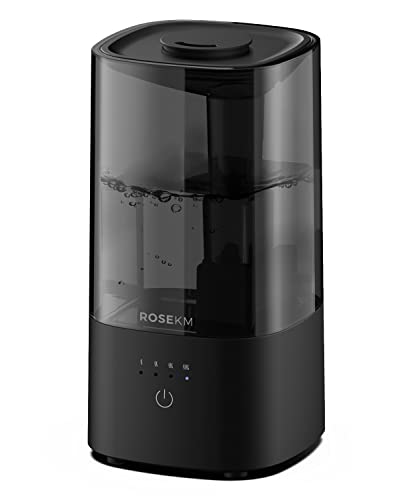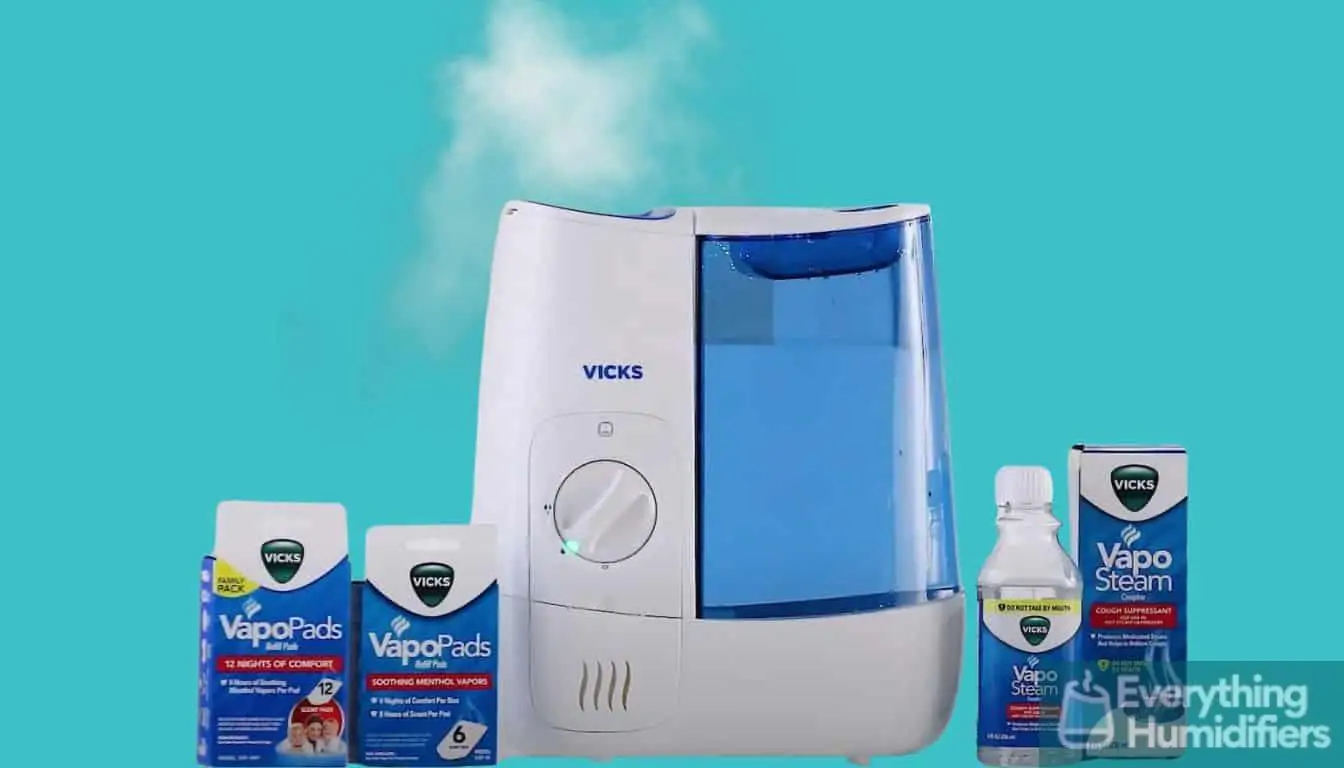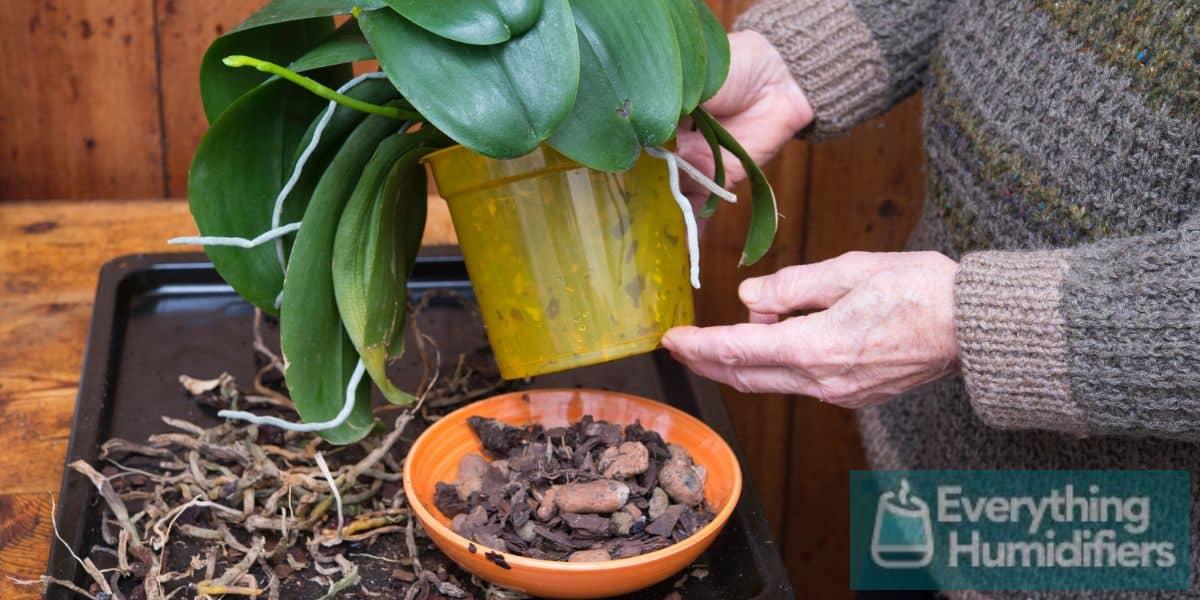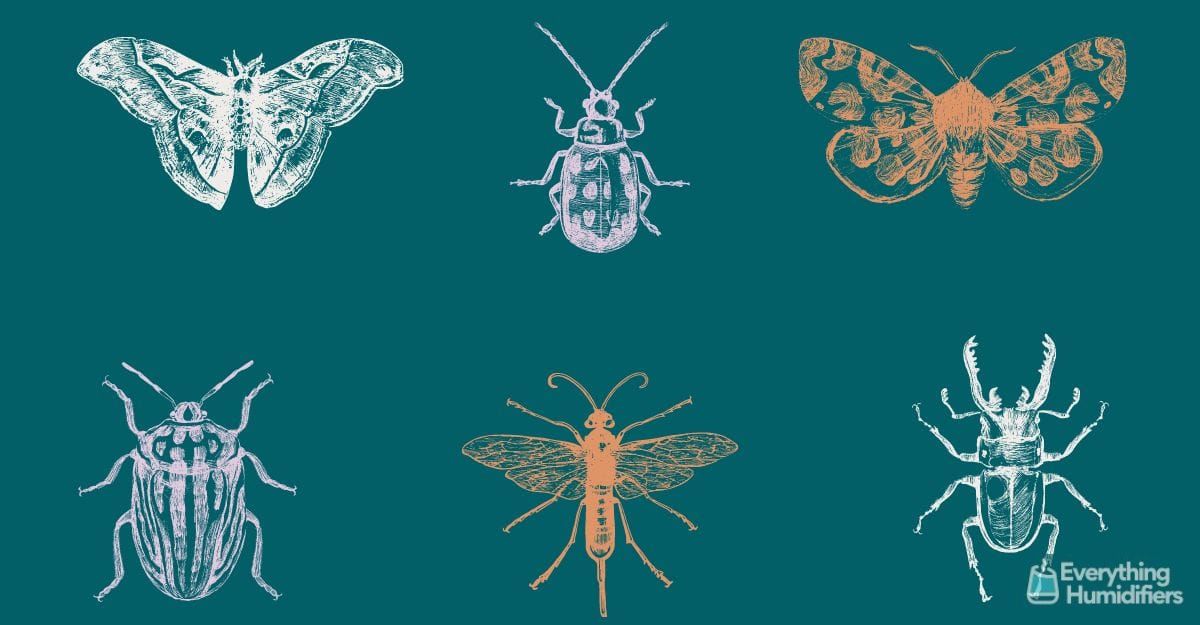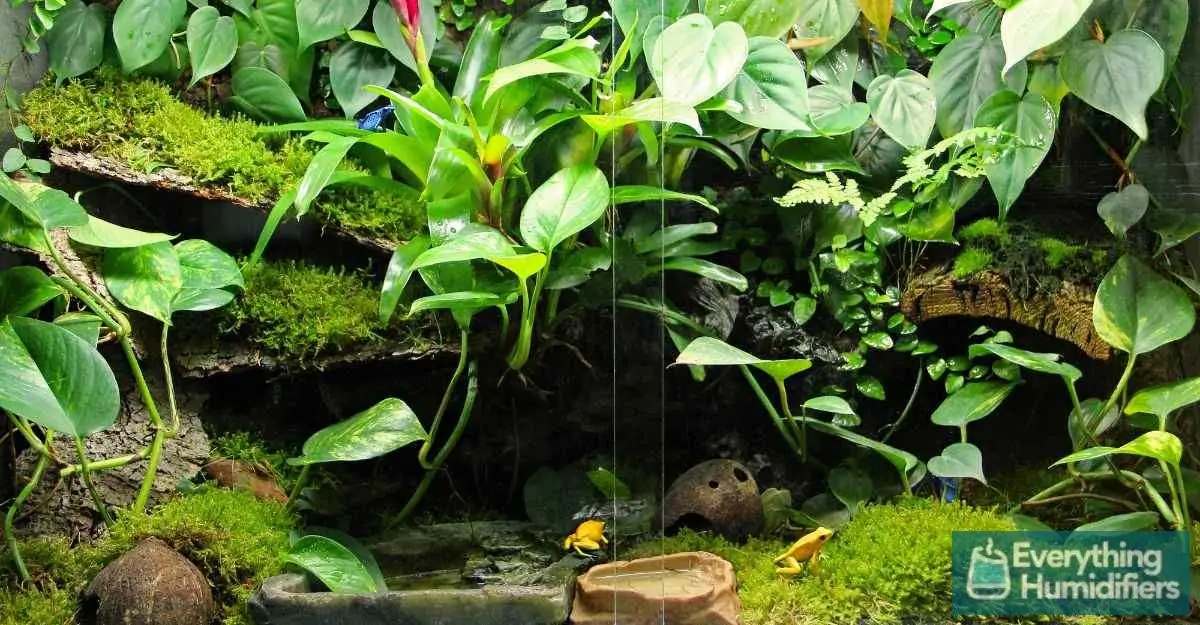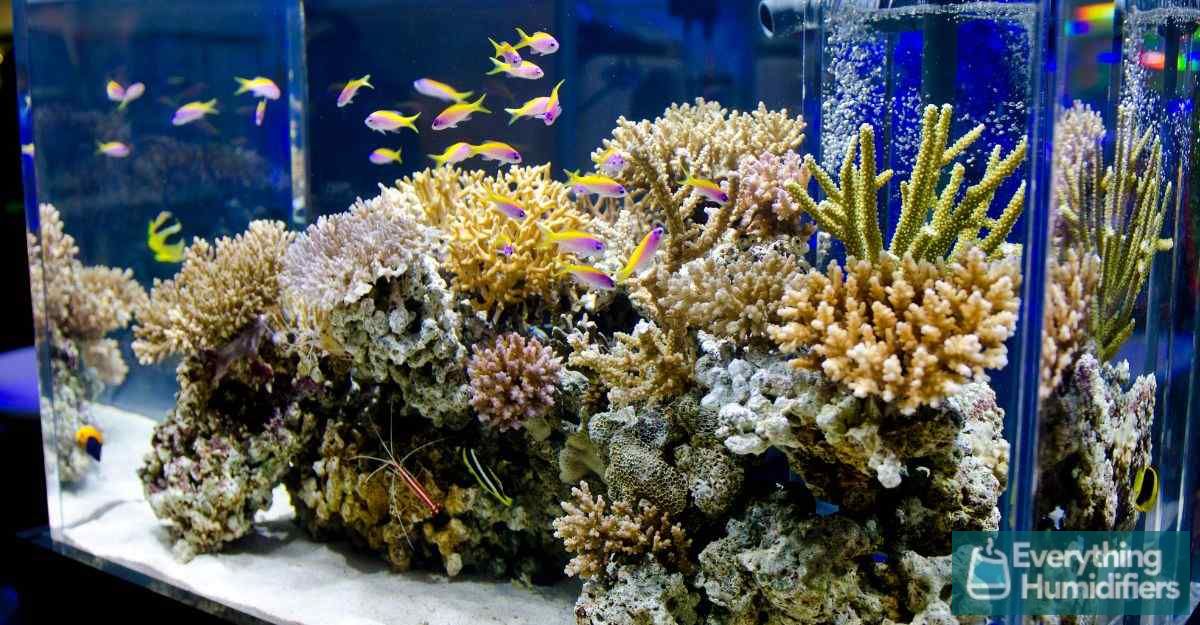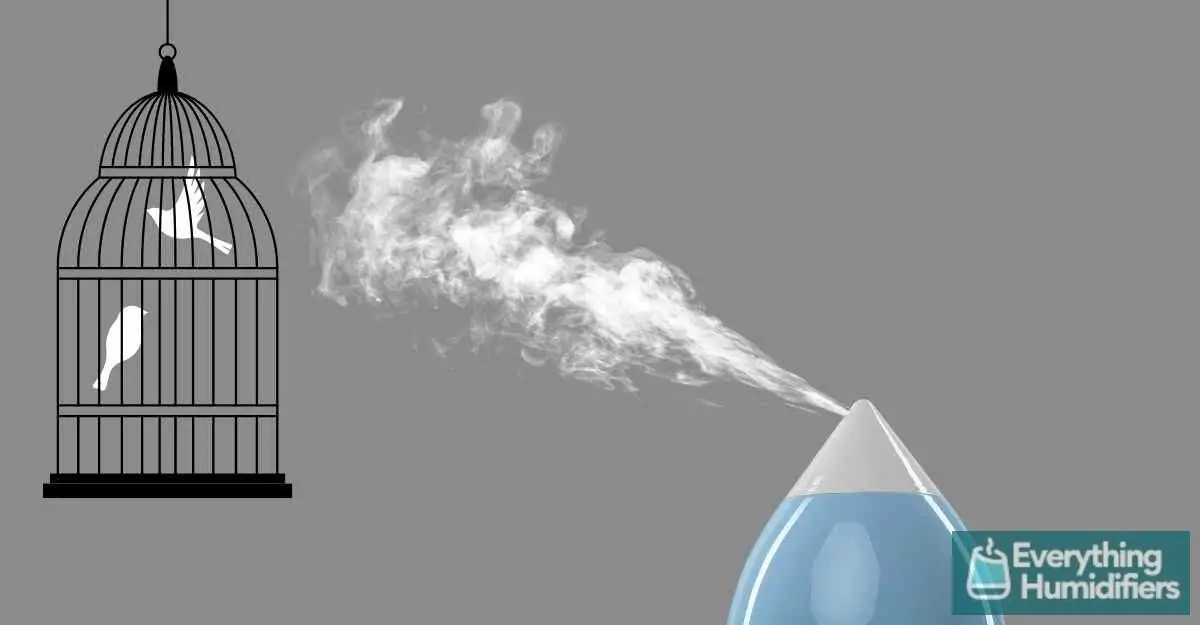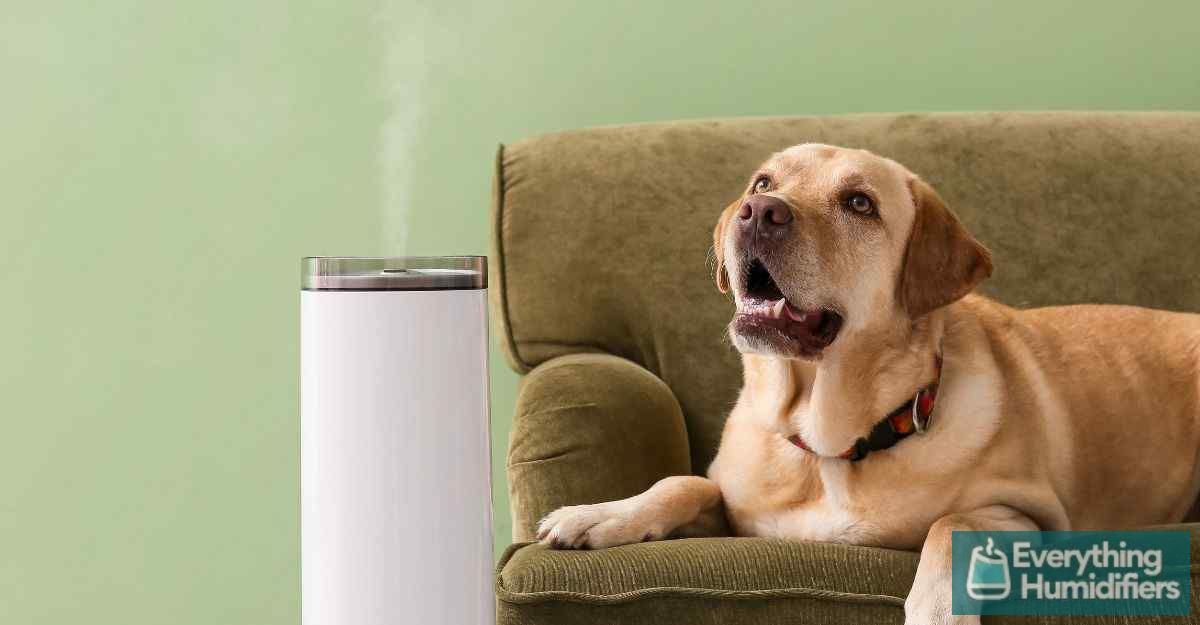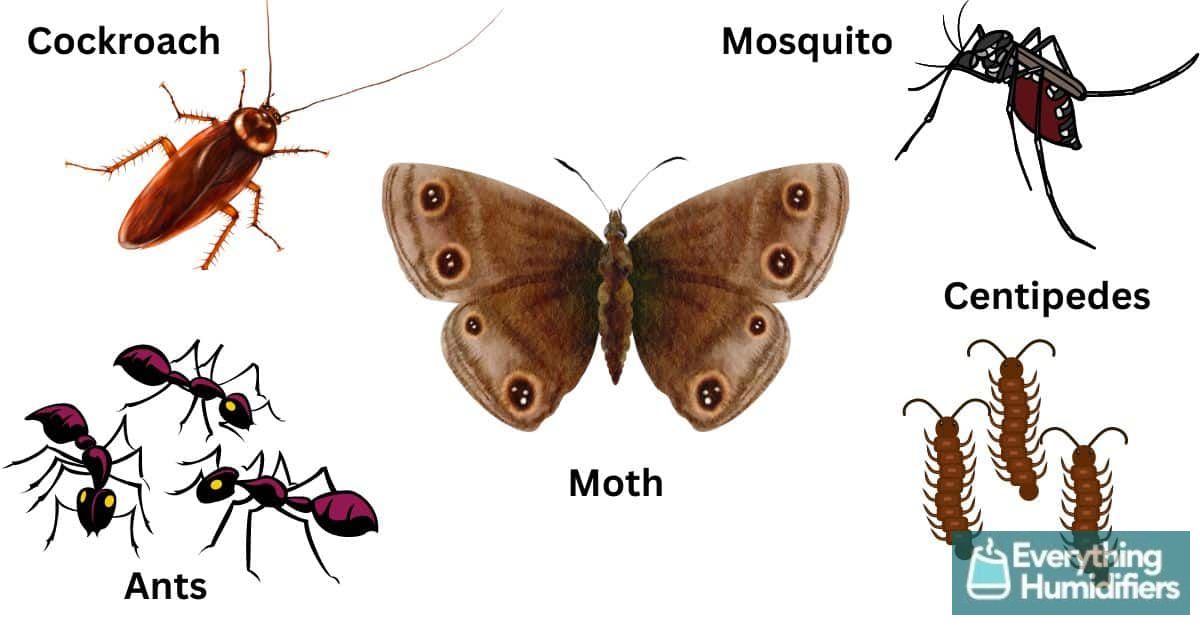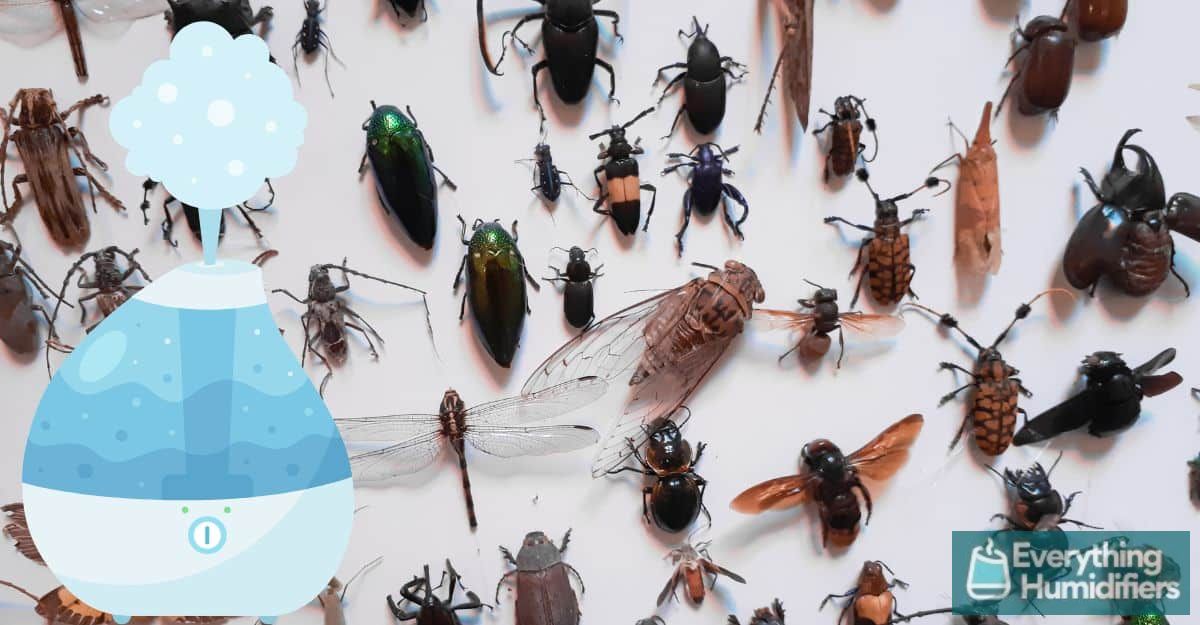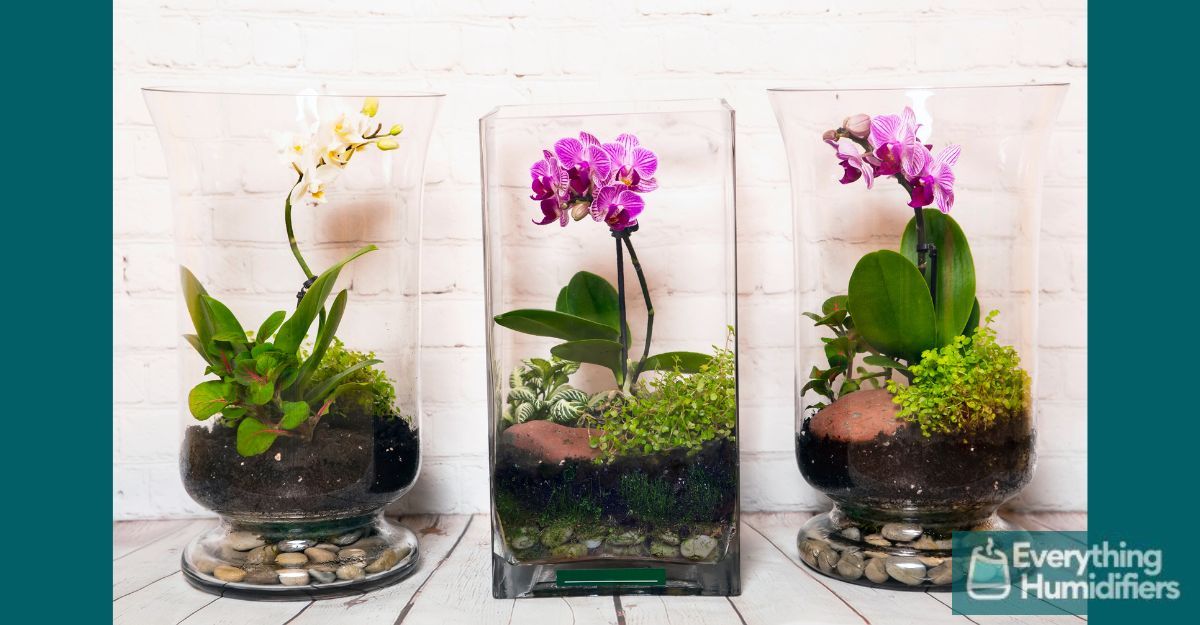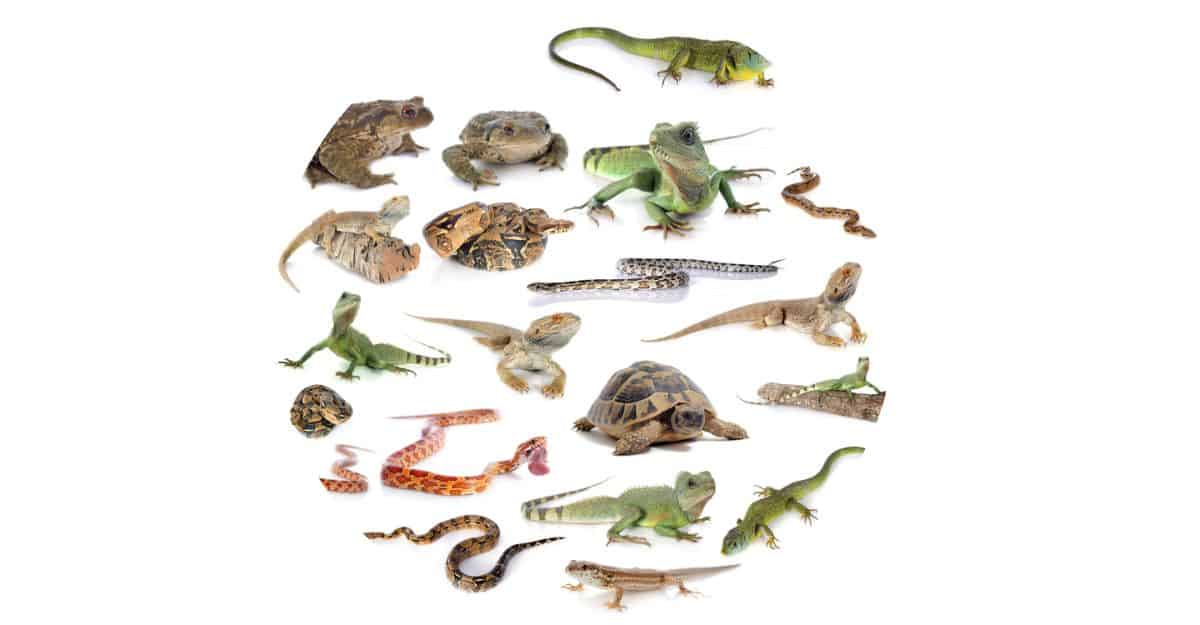Humidifiers add moisture (humidity) to the air.
To work out if you need a humidifier, start by finding out the current humidity level in your home or workspace.
If you are not sure what the humidity level is, you can buy a small, inexpensive device called a hygrometer; you can easily measure the humidity level in your home before deciding whether a humidifier is right for you.
Indoor humidity levels should be between 30% and 50% (optimal)
Recommended Humidity Level from the Indoor Air Quality Guide
The United States Environmental Protection Agency (EPA)
If your humidity levels are below 30%, you will benefit from installing a humidifier.
If your indoor humidity level is higher than 50%, you will not need a humidifier due to excess moisture in the air. A dehumidifier can remove additional humidity.
This article will outline how humidifiers work, their uses, and their benefits.
I will also dispel some common myths about humidifiers and share tips on choosing the right one for your needs.
Table of Contents
The Benefits of using a humidifier
Humidifiers are beneficial in the home, offices, grow tents, conservatories, vacation, commercial or industrial environments.
Benefits of Humidifiers at Home
Many people are interested in the health benefits of using a humidifier.
These are some of the health benefits of adding moisture to the air with a humidifier:
- humidified air reduces congestion, especially in the winter
- assist in alleviating dry skin, sore throats, and other symptoms of dry air
- promote easier breathing and help those suffering from asthma
- help prevent respiratory infections such as the common cold and flu
- reduces allergies
- improve sleep quality
Although a humidifier can be beneficial, it will not replace medical treatment. If you experience new or worsening symptoms when using your humidifier, turn it off. When needed, consult a qualified medical practitioner.
Apart from medical conditions, by adding moisture to the air, you will also protect:
- wooden floors
- window frames
- wooden furniture
- fittings that tend to crack when they become dry and brittle
- house plants

Do Humidifiers Promote Plant Growth?
In addition to their benefits for people and workplaces, humidifiers can help plants thrive. The added moisture in the air can help plants grow lusher, healthier, and even increase blooming.
Humidifiers are great for growing tropical plants in grow tents and tunnels.
Humidifiers in the Workplace
Commercial humidifiers can help to improve employee comfort and productivity.
- Using a humidifier in the office in dry climates or in tandem with air conditioning, workers will feel more comfortable and less prone to respiratory health issues and irritants such as static electricity and dust caused by dry air.
Controlling the humidity of the work environment will also safeguard sensitive electronic equipment from being damaged or malfunctioning.
On the other hand, too much humidity can cause problems such as condensation and the steaming up of windowpanes and glass doors.
Excessive moisture or condensation can damage electronic equipment, cause general moisture damage, and even mold.
Well-regulated humidity levels will add just enough moisture to the air to prevent these problems from occurring.
Industrial Applications for Humidifiers
Humidifiers have many industrial applications as well.
In textile factories, for example, a humidifier can help reduce static electricity and fabric shrinkage.
Printing companies use them to keep paper from becoming too dry and brittle.
Main Types of Humidifiers
There are two main temperatures of humidifiers, each with advantages and drawbacks, depending on the application.
Humidifiers add water into the air via mist, vapor, steam or small water droplets.
Technology does differ depending on the model you choose.
Cool mist humidifiers
An internal fan or vibrations blow air through a moistened filter or wick to remove any impurities from the water and release the moist air back into the environment.
In warm weather, they may also help to cool down the air.
Cool mist humidifiers are considered safe around children and pets but take care as they are still electrical appliances.
This type of humidifier is recommended if your child has a cold by the American Academy of Pediatrics.
Warm mist humidifiers (also known as vaporizers)
Prefer a sauna rather than a cold plunge pool? Warm mist may be a better fit for you. Warm mist humidifiers use an internal heating element or electrodes to boil water and release steam mist into the air.
Boiling of the water can also eliminate any bacteria already in the water.
Warm-mist is ideal for cold weather, and it can also help people with nasal congestion or respiratory problems, as the warmth helps soothe and loosen mucus.
Please be aware of the safety of boiling water when children and pets are around. To avoid hot water burns, you may need to keep your humidifier out of reach when it is on.
Dual Mist
Dual Mist humidifiers have the option to choose which heat setting you prefer.
Cool or Warm Mist is predominantly a personal choice as the function and purpose are similar.
Most Popular Humidifier Types
Ultrasonic – warm, cool or dual mist

- Ultrasonic humidifiers use high-frequency sound waves to break the water into a fine billowing mist dispersed via an internal fan.
- They are typically quiet and can be effective in any room in the house.
- This humidifier will have a high mist output and works well if you want to humidify a large area.
- Because ultrasonic humidifiers do not have a filter, the water that is vaporized and emitted is only as good as the water you put into the humidifier in the first place.
- Distilled water is a must to avoid fine white dust particles.
- The white dust is the minerals in the water (hard/tap) that have been vaporized and dried to form white dust.
- The dust may not be an issue for some people, merely an inconvenience of dusting more frequently.
- If you have allergies or sensitive lungs, an evaporative humidifier would be the better choice for you.
Evaporative – cool mist

- The evaporative humidifier uses a fan that draws in air and passes it over a moistened filter.
- The moistened air is pushed back into the surrounding air by the fan. This type of humidifier is helpful for people who have allergies because allergens are not put back into the air.
- This type of humidifier is typically easy to maintain.
- Filters help remove any pollutants and minerals from the water.
- Likely, you may not be able to see the evaporative humidifier working as the water droplets are invisible and not a fine mist.
- We cannot see the water mist in the humid air.
- You can check if your humidifier is working by using your hygrometer to test the humidity level of the area before and then after operating.
- You will see by the readings and the feel of the room that it is working.
Vaporizers – warm mist

- Warm mist humidifiers and vaporizers operate similarly by adding moisture to the air by heating or boiling the water and releasing steam into the air.
- Primarily the steam they emit is soothing relief from the symptoms of colds and flu.
- Some vaporizers can disperse medicated products. Please check if the manufacturer recommends this or special water-soluble oils.
- Examples: Eucalyptus, tea tree, or lavender.
Central Air Humidifiers

- These are larger units connected to the central air conditioning system (HVAC) and add moisture to a whole home.
- A humidifier can be installed on your furnace.
- Flow-through
- Steam
- Radiator
- Baseboard heat
- Heat pump
- Tankless water heater
Choosing the Right Humidifier for Your Needs
With all these options, you may be wondering which humidifier is right for you. Consider these factors when making your choice.
Please refer to our Buyer’s Guide for more detailed information:
- Choose a humidifier that matches your room size.
- There are many unit sizes.
- Personal humidifiers are portable and easy to carry.
- Home humidifiers stand on a table, a shelf, or a floor.
- Whole-home humidifiers are much larger and usually require expert installation.
- The type of humidity you prefer – cool or warm mist
- How often the humidifier will need to be re-filled with water
- Whether the noise is a factor for you
- The type of filter the humidifier uses and replacement frequency
- Whether it has a timer or auto-shutoff feature
- Built-in sensors (humidistat) to automatically control and adjust the humidity level setting
- Maintenance and cleaning that is required
- We suggest checking out the manufacturer’s directions before becoming a humidifier parent.
- Warranty. Support from a manufacturer who is prepared to stand by their product could be helpful.
Common Misconceptions about Humidifiers
There are many benefits to using a humidifier; however, there are also some common misconceptions.
Let’s look at some of these myths:
Myth: Humidifiers will dry out my sinuses and throat
A humidifier can help alleviate these symptoms by adding moisture to the air.
Myth: Humidifiers are expensive to operate
If you purchase a low-wattage humidifier, it will not be expensive to operate and can save money on your heating bill because humid air holds heat better.
Myth: Humidifiers protect against Coronavirus
A humidifier may create an optimal climate where viruses find it harder to survive. However, this would not be complete protection against Covid.
Myth: Humidifier functions well with tap water
Most manufacturers recommend using only filtered, distilled, purified, clean water in humidifiers. Depending on the quality of your tap water, higher levels of minerals and other particles may be present in the tap water. Minerals from unfiltered tap water (hard water) can build up.
Your humidifier may wear faster and break down quicker than expected. The humidifier can also disperse these minerals into the air, and a person may inhale them. The particles, when dry, may also settle around the room as white dust and potentially cause breathing problems.
Myth: Reverse osmosis water can be used instead of distilled water
Consider the main difference between the two. The choice is yours.
Reverse osmosis filters water and then adds minerals back into the water.
Distilled water filters the water but does not add minerals back in. (which explains the ‘dead taste’).
Summary
A humidifier may benefit if you or anyone in your household suffers from the symptoms of low humidity.
So you can ascertain what the humidity levels are in your home, monitor first with a hygrometer.
Consider carefully the features you require to make sure you find a humidifier that meets your needs.
If you have any doubts about whether a humidifier is for you, please discuss your situation with a professional.
So, now that you know more about how do humidifiers work, it is obvious why they are so popular – and can be beneficial!
Go ahead and give it a try – you may be surprised at just how much difference a humidifier can make in your life!




